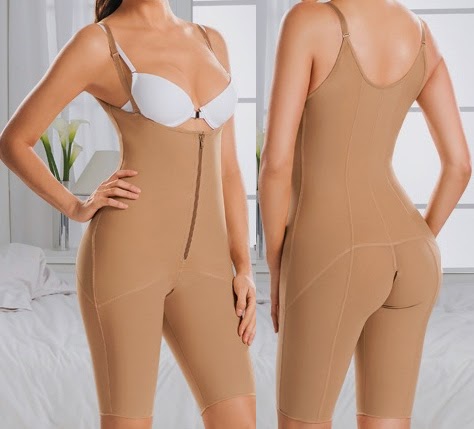Importance of Compression Garments for Diseases

Mohammad Zain Ul Abideen
B. Sc. in Textile Engineering, Pakistan.
Cell: +92-321-8894390
E-mail: davilzain@yahoo.com
Compression Garments:
Compression garments are pieces of clothing, such as socks, pantyhose, sleeves, etc., that provide support that is especially useful for people who have to stand for long periods, or people with poor circulation. The garments can come in varying degrees of compression. The higher degrees require a doctor’s prescription. Compression garments worn on the legs can help prevent deep vein thrombosis and reduce swelling, especially while traveling.
Compression sportswear is also worn by some athletes during exercise to prevent chafing and rashes, and post-exercise to ease muscle stiffness and quicken recovery time.
Compression garments enhance your curves, control your figure and reduce clothing size in specific areas of your body. Besides, compression garments are widely used in medical textile.
 |
| Compression Garments for body shape |
Compression garments enhance your curves, control your figure and reduce clothing size in specific areas of your body. Besides, compression garments are widely used in medical textile.
Different diseases for which compression garment are necessary:
(1) Tired, aching legs:
Occurs when the blood flow slows down in the legs (can be an indicator of deep vein thrombosis).
(2) Edema (Mild ankle or foot swelling):
When blood and tissue fluid pool in the legs and feet due to poor circulation.
Occurs when the blood flow slows down in the legs (can be an indicator of deep vein thrombosis).
 |
| Compression Garments for injured leg |
When blood and tissue fluid pool in the legs and feet due to poor circulation.
(3) Chronic peripheral venous insufficiency:
Veins cannot pump deoxygenated blood to the heart.
Veins cannot pump deoxygenated blood to the heart.
(4) Varicose veins:
Saccular and distended veins which can expand considerably and may cause painful venous inflammation. Once developed, will not disappear on its own. The formation of varicose veins is an externally visible sign of venous weakness.
Saccular and distended veins which can expand considerably and may cause painful venous inflammation. Once developed, will not disappear on its own. The formation of varicose veins is an externally visible sign of venous weakness.
(5) Spider Veins:
Spider veins (mild varicosities) the smallest cutaneous blood vessels which shimmer bluish or reddish through the skin.
(6) Deep Vein Thrombosis (DVT):
Occurs when blood flow decreases (especially in the lower extremities), causing blood to pool in the legs and leading to blood clot (thrombus) formation.
Spider veins (mild varicosities) the smallest cutaneous blood vessels which shimmer bluish or reddish through the skin.
(6) Deep Vein Thrombosis (DVT):
Occurs when blood flow decreases (especially in the lower extremities), causing blood to pool in the legs and leading to blood clot (thrombus) formation.
(7) Lymphoedema:
When a body part swells due to an abnormal accumulation of lymph fluid occurring when there is interference with the normal drainage of lymph fluid back into the blood commonly swelling the arm, leg, neck or abdomen.
When a body part swells due to an abnormal accumulation of lymph fluid occurring when there is interference with the normal drainage of lymph fluid back into the blood commonly swelling the arm, leg, neck or abdomen.
(8) Phlebitis:
Inflammation and clotting in a vein most often a leg vein due to infection, inflammation or trauma. People with varicose veins are more often affected. Inflammation occurs suddenly causing the thrombus to adhere firmly to the vein wall which can clog a superficial vein.
Inflammation and clotting in a vein most often a leg vein due to infection, inflammation or trauma. People with varicose veins are more often affected. Inflammation occurs suddenly causing the thrombus to adhere firmly to the vein wall which can clog a superficial vein.
(9) Economy Class Syndrome (ECS):
Occurs on long flight due to traveler’s inactivity, gravity and cramped seating which slows down the blood flow through veins.
Occurs on long flight due to traveler’s inactivity, gravity and cramped seating which slows down the blood flow through veins.
(10) Lipodermatosclerosis:
Inflammation of subcutaneous fat form of panniculitis.
(11)Pregnancy:
Hormones released during pregnancy and the expanding uterus (pressure on the inferior vena cava - the major vein returning blood up to the heart) can affect leg veins.
Hormones released during pregnancy and the expanding uterus (pressure on the inferior vena cava - the major vein returning blood up to the heart) can affect leg veins.
 |
| Compression Garments for pregnancy |
{ 0 comments... read them below or add one }
Post a Comment